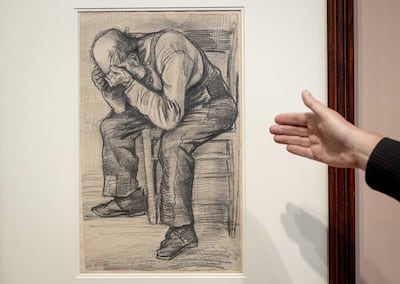A man aged 59, described as an “incorrigible and calculating criminal”, was convicted on Friday of stealing a painting by Vincent van Gogh and another by Frans Hals from two Dutch museums last year, and received the maximum sentence of eight years in prison for the crime.
Neither of the paintings, each worth several million euros has been recovered.
The man, whose identity was not released in line with Dutch privacy rules, was found guilty of snatching the Van Gogh painting The Parsonage Garden at Nuenen from the Singer Laren museum near Amsterdam.
A few months later, he stole the 17th century Two Laughing Boys by Frans Hals from the Museum Hofje van Mevrouw van Aerden in Leerdam, 60 kilometres south of the Dutch capital, the Central Netherlands Court said.
The court said the Hals painting was valued at €16 million euros. It did not give a value for the van Gogh work.
On the very rare occasions that paintings by the tormented Dutch master come up for auction, they attract multimillion-dollar prices.
Last Thursday, a newly discovered van Gogh drawing that had been hidden in a private collection for more than a century went on display for the first time at the Van Gogh Museum in Amsterdam.

Both paintings were stolen by a man who broke into the museums at night and then fled on a motor scooter driven by an accomplice.
The accused has a previous conviction for a similar art heist but denied involvement.
“The court doesn’t believe this,” the court said. “His DNA was found at both crime scenes and the man can’t explain how that is possible.”
The court described the paintings as “part of the national cultural heritage, they are important for present and future generations.”
“That is why, and given the criminal record of the suspect who is, according to the court, an incorrigible and calculating criminal, the court considers the maximum sentence to be appropriate,” the court said.

